
As coronavirus lockdowns have taken hold around the world, “looking out for your neighbours” has deepened in significance. Refugees who fled conflict and persecution are committed to caring for people in their new communities during the pandemic. From delivering food packages to sharing vital information about COVID-19, they’ve gone out of their way to ensure others don’t feel alone. Because when all you’ve had to keep going is enduring hope, you help people discover their own.
Meet the refugees helping their neighbours through the pandemic.
Jean Marie
Refugee. Youth Advocate. Community Leader.
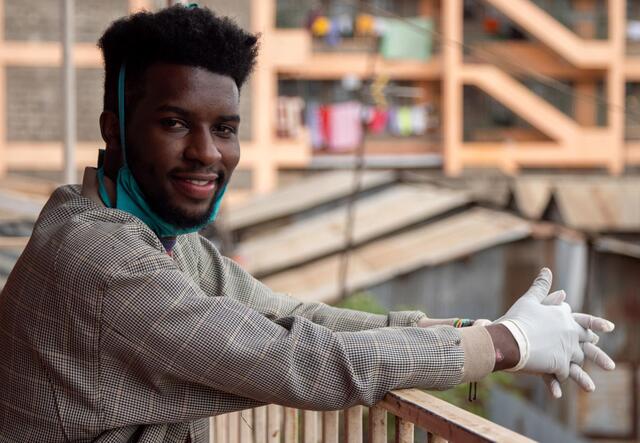
Twenty-three-year-old Jean Marie Ishimwe is well acquainted with the struggles of refugees in Nairobi, Kenya. A refugee himself from Rwanda, he co-founded a group to teach digital skills to refugee youth and co-chairs a youth empowerment organization. Today, he is using his coordination and motivational skills to mobilize young people to respond to the COVID-19 pandemic.
There’s nothing small during the coronavirus. Everything is important. Everything that is positive is important.
“My greatest strength is the youth that I interact with,” he says. “They give me strength to continue.”
Knowing that both refugees and locals would struggle during the pandemic, Jean Marie organised youth to raise money and put together food packages to sustain a family for two to three days. The group adds masks to the packages and spends time educating recipients about COVID-19.
“I am not infected, but I am affected,” Jean Marie says, pointing out that the pandemic has touched all aspects of life and requires action from all of us.
“We have to try to commit ourselves to helping our communities in any way possible. There’s nothing small during the coronavirus. Everything is important. Everything that is positive is important.”
Mohamad
Refugee. Volunteer. Community Advocate.
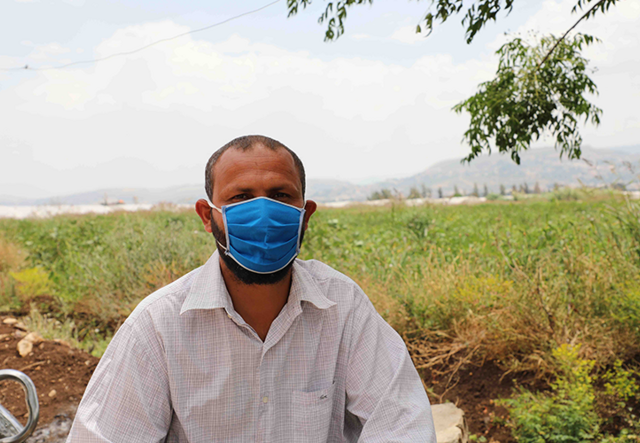
Mohamad had led his family out of Syria , carrying his disabled 17-year-old daughter on his shoulder for 15 days until they reached a tented settlement for refugees in Lebanon. When the coronavirus outbreak took hold in Lebanon, he immediately volunteered to shop for elderly people and those with special needs so they could shelter at home. But he continues to worry most about his own.
Helping people is my duty as a human being. If everyone started helping each other, life would be beautiful.
“My children are my responsibility,” he says. “I brought them into this world … I’d rather die instead of them. We used to have a two-story house in Syria. All my efforts and sweat, all those years, were invested in building that house. All of a sudden, the house was bombed. Now, I have zero finances.”
Mohamad’s daughter gives him strength to keep going. “I always encourage my daughter to be courageous. She asks me, ‘Why am I sick?’ I try my best to lift her spirits. Whoever needs help, I will help. We are all humans after all. If everyone started helping each other, life would be beautiful.”
Rania Abou
Refugee. Food Distributor. Front-line Worker.
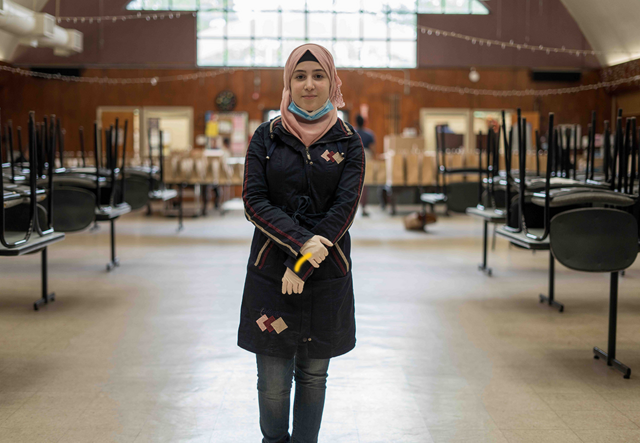
Twenty-year-old Rania Abou is from Damascus, Syria. She came to U.S. as a refugee, with her father and brothers, less than a year ago. (Rania's mother passed away several years earlier while the family was living in Egypt.) Today, she works as a food distributor with the International Rescue Committee and World Central Kitchen in New Jersey, United States.
An artist, Rania dreams of putting her drawing skills to work as an engineer. When the coronavirus put those plans on hold, she jumped at the chance to help her community.
It's like a circle. I help somebody and somebody helps me.
“When people who need the food come, we give the food to all without asking them their name or ID or anything like that. We just ask them how many people in their family and give them the food.
“When I see the kids smiling, I feel happy. And that's given me hope.
“I want to say that we should all stay at home and stay hopeful. And if we can help others, we should help others … if I can help, I should help. In the future, somebody will help me. It's like a circle. I will somebody and somebody helps me.”
“I think if my mum [was] alive, she [would] be proud of me.”
Md Mominul Hamid
Asylum Seeker. Food Distributor. Community Champion.
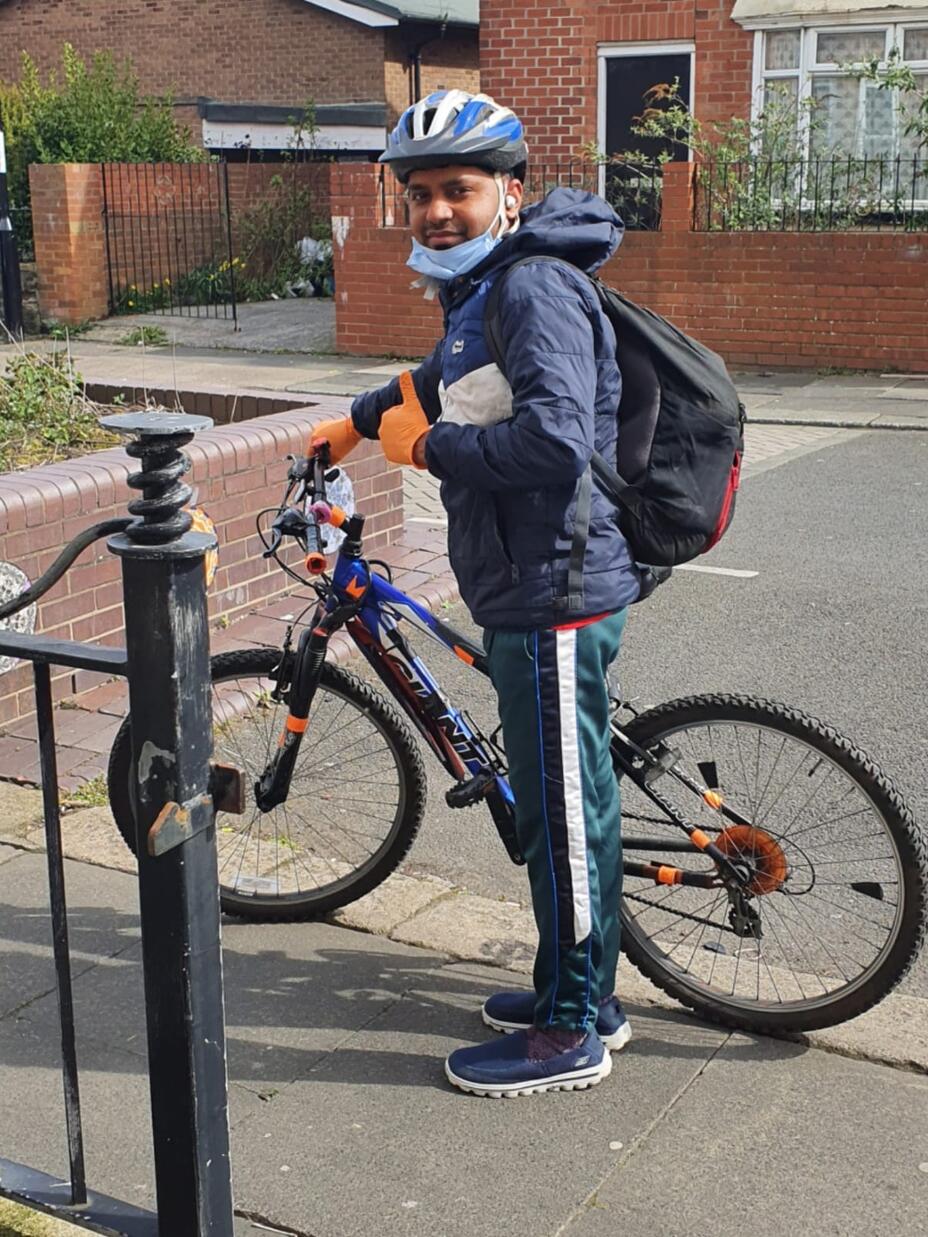
As an asylum seeker in the U.K., Md Mominul Hamid knows firsthand the challenges of trying to make ends meet, having to survive off of a weekly government allowance of £39.60. When the COVID-19 lockdown hit the UK, he knew that others would be struggling too, so he started to take food packages to vulnerable people in his community.
By Week 10 of the lockdown, Md, who is originally from Bangladesh, had delivered 409 food packages, made up of donations from neighbours in his new home in Newcastle. He cycles to the homes of elderly people, asylum seekers and refugees to ensure they don’t have to go hungry during this intense time.
This pandemic has shown us how to have compassion and how to be there for people.
Past traumas mean Md has found being stuck at home difficult during the lockdown. He is a survivor of human trafficking and was forced from his home of Bangladesh to the UK in 2017, where he was enslaved for six months. Since escaping enslavement, his time in the UK has continued to be challenging in multiple ways. He’s faced racist abuse both online and in the streets. His status as an asylum-seeker also blocked him from going to university. After campaigning, he’s now proud to be studying law at Northumbria University and hopes that one day he will become a barrister to help get justice for survivors of modern-day slavery.
“I asked everyone, please knock on your neighbours. If you can't knock, then call them. If you cannot call them, write a letter and ask if they need any help. If everyone can be there for their neighbours, that will make all the difference.”
Henry
Refugee. Communicator. Trust Builder.
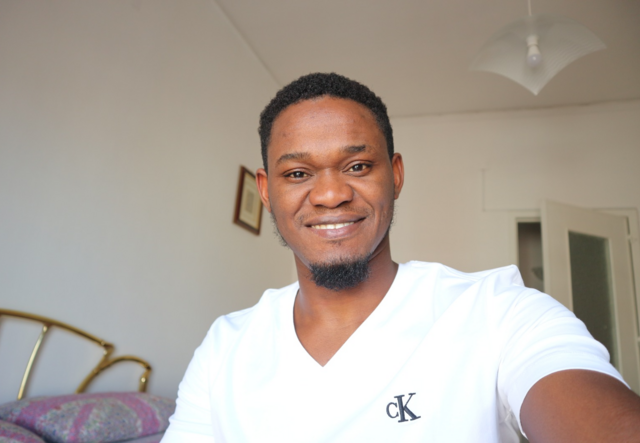
Born in Nigeria, Henry Tbilisi works in Italy for the IRC moderating Refugee.Info, an online platform that tackles misinformation and answers questions from asylum seekers and refugees recently arrived in the country.
Having been a refugee himself, Henry has channeled his experience into helping others feel less alone. He has also been raising awareness about COVID-19.
This is a critical period … there's fake news everywhere, all the time.
"People are dying and people are really worried,” he says. “For refugees, migrants and asylum seekers in Italy the situation is incredibly difficult. There are those who are on their own—how do you stay indoors if you don’t have a house?
“We've been helping to keep people informed about the virus and where they can get help or places to stay. We build trust with our users. This is a critical period … there's fake news everywhere, all the time.
“When they experience racism they don’t know who to turn to,” Henry says of another challenge many of those he assists face. “We help guide them to services – and most importantly, we really listen to them.
“People pretend there’s no racism or say ‘I’m not racist.’ But racism is happening everywhere. I can’t tell you how many times I have experienced racism as a Black man. It’s a global issue and we have to fight it. The case of George Floyd struck a chord and now people are speaking out… The world needs to realise that we are all humans and all humans are equal."
Yasmin Ara
Refugee. Community Volunteer. Refugee Advocate.
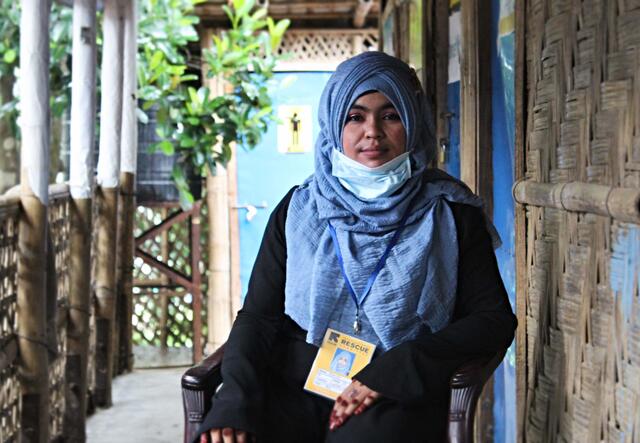
Twenty-one-year-old Yasmin is a Rohingya refugee from Myanmar living in Cox’s Bazar in Bangladesh, the world’s largest refugee camp. In May, the first case of the coronavirus was reported in the camp.
Rohingya people help others as much as possible. They take care of each other, they stay together.
As a community volunteer for the IRC, Yasmin’s been going door-to-door to raise awareness about protection from the virus.
"The camp is a very crowded place and there isn’t enough soap,” she explains. “There’s no electricity, so we can’t take baths properly. We’re in a very risky situation, living like chickens in a cage. It’s very tense—but we have to control our fear … we have to be brave.
"People are living in fear. We teach them how to stay safe from the coronavirus: that people must wash their hands, avoid crowded places and go to the hospital if they get sick."
The challenges are great, but Yasmin remains hopeful. "Rohingya people help others as much as possible. They take care of each other, they stay together."
Irmgard
Refugee. Community Champion. Friend.
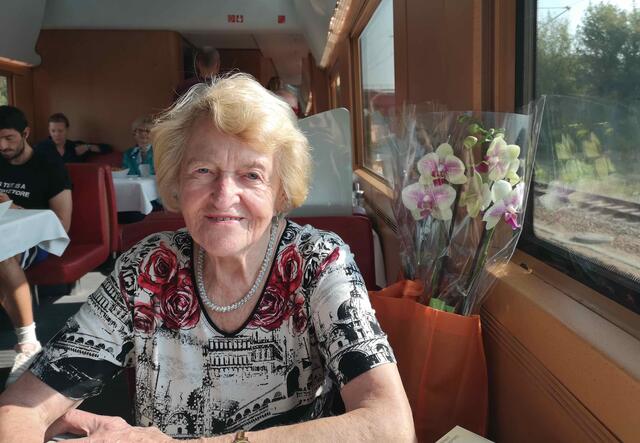
When the lockdown started in Germany, ninety-one-year-old Irmgard became a source of knowledge and comfort for her younger friends. A voluntary Grandma to Berliners, Irmgard shared tips from her post-war years.
What really worries me is my younger friends getting sick. They have their whole lives ahead of them.
"I was surprised how many people called me to talk," she says, explaining that she offered advice to people on things like batch-cooking to reduce the number of times they had to go to the supermarket.
Irmgard, born in Silesia, fled her home as a child in 1945 in fear of the Russian Soviet ‘Red Army’. She left all her belongings behind and relocated to East Germany, where she was welcomed by a kind farmer’s family. But the call of a better life out of communist rule led her to leave her home again in 1957. “When the Berlin Wall was built in 1961 and many fled West Berlin, I moved in,” Irmgard says.
Today, she is a proud Berliner and spends her days giving back. Whether it’s helping residents in her supported housing get around in their wheelchairs, cooking up her infamous lasagnes, or being on the end of the phone to support someone feeling isolated during the pandemic, Irmgard is always putting others before herself. “What really worries me is my younger friends getting sick. They have their whole lives ahead of them. Every day I hope they stay healthy!"
Meheria
Refugee. IRC staff. Mentor.
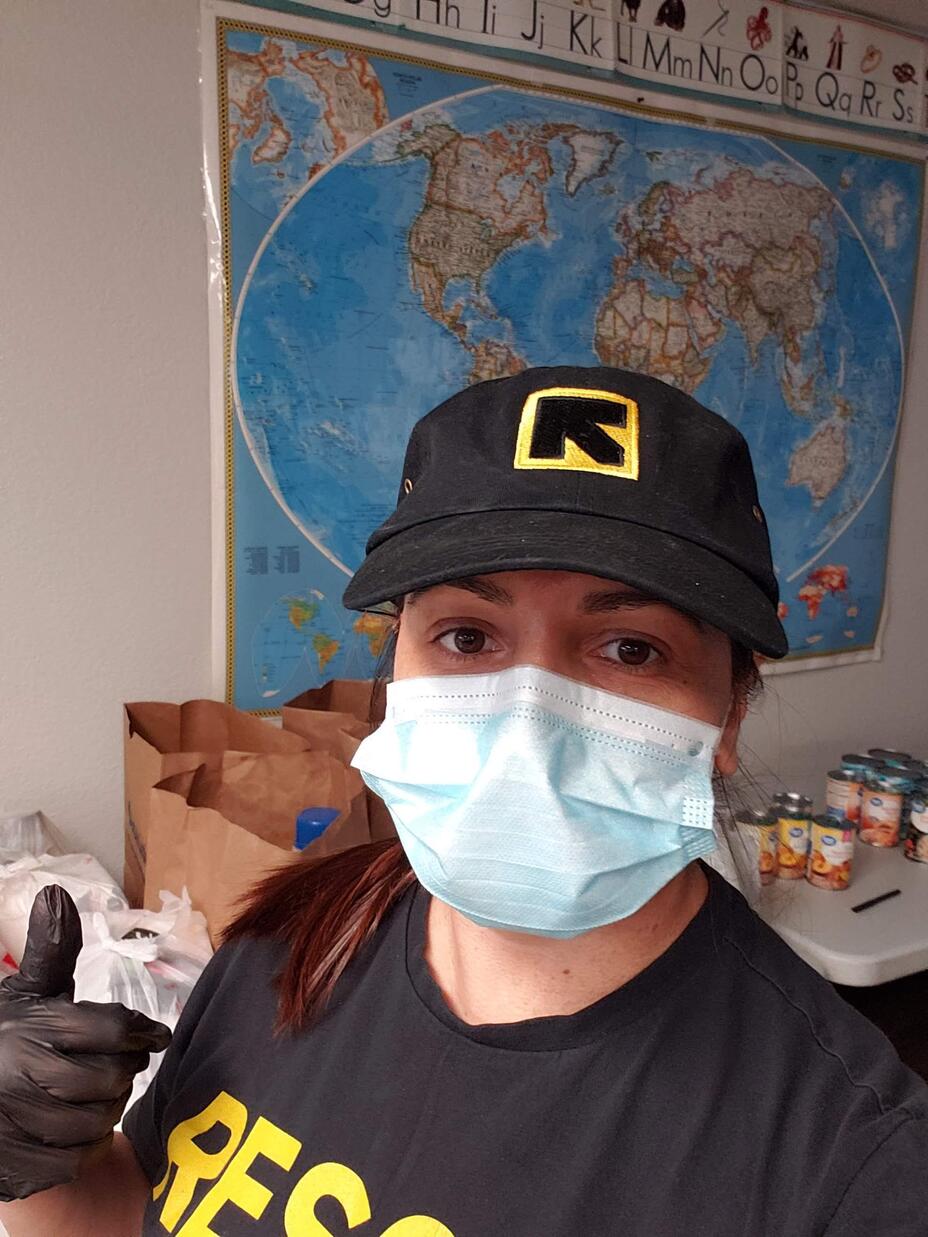
Meheria Habibi is a senior programme manager in the IRC’s Tucson, Arizona office in the U.S. and a refugee from Afghanistan. For nearly 20 years, she has worked for the IRC helping refugee families like her own thrive in the United States.
When I see our clients thrive, it motivates me to do the best that I can do.
“My work has completely changed during the pandemic,” she says. Meheria oversees most of IRC’s direct services in Tucson and many of her clients are struggling because of the coronavirus. Meheria spends her days supporting staff to help clients access basic needs, sometimes even delivering food to a family’s door herself.
Meheria is well aware of the emotional toll the pandemic takes on her clients. “This is traumatic, especially for people who have gone through our experiences,” she says. “For me, when the coronavirus pandemic happened, it brought back a lot of memories of war. I was in Afghanistan as a child. That fear of going through that again, that fear of not being safe or being able to provide safety for your family members, is something I think about all the time.”
Despite the challenges, Meheria takes inspiration from her clients’ accomplishments. “Whether it is a client opening a business or getting their citizenship, I remind them: it was really hard in the beginning, but look where you are right now. When I see our clients thrive, it motivates me to do the best that I can do.
“There is so much going on right now that it could be discouraging. It could bring a sense of hopelessness, but I want refugees to know that there are so many people in this world that really care about them.”